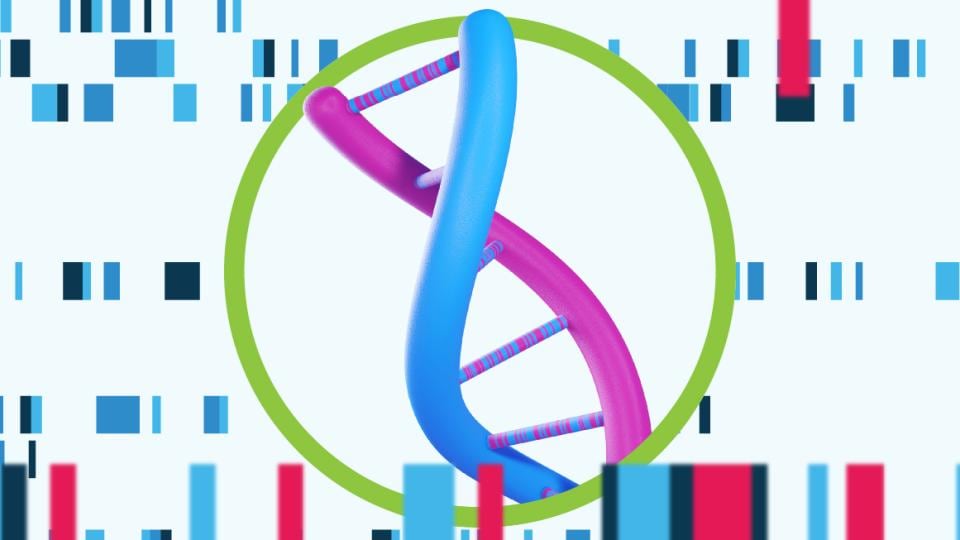Treatment Option for Cardiovascular Disease

Cardiovascular disease is the most common cause of death worldwide. As a disease of modern society, its occurrence is increased by factors such as a poor diet, lack of physical activity or too much stress, thereby leading to a stroke or heart attack. Bayer has developed new treatment options to reduce the risks of these serious events.
Gill Holman (63) stands in the garden outside her home and attempts to sound optimistic. “I’m a practical person,” she says as she throws a few grains to the three chickens she keeps in her yard, as if to affirm that life goes on. She lives with her husband John in Royston, England, 25 kilometers south of Cambridge, in a single-family home on a quiet street. Up until just a few years ago, Gill was an enthusiastic hiker, but now it takes a significant effort for her to get out into her own garden. Royston Heath, a nature reserve, is not far from her house. “I used to hike eight to nine kilometers there every weekend,” she explains. “But my illness has put a stop to that.”
In 2012, she was diagnosed with peripheral arterial disease, which causes poor circulation in the legs, and causes Gill to suffer chronic, cramping pain. In 2015, she was also found to have coronary artery disease. Her life has changed drastically since then. She can no longer walk for long periods of time and struggles to bend down and kneel. She takes up to 12 different kinds of medications per day. “I have to accept a life of chronic pain that might continuously reduce my ability to walk,” she says. She also has to cope with the constant risk of a stroke or heart vessel blockages. And if that weren’t stressful enough, her husband suffered exactly that, a stroke. Gill looks after him, the best she can.
The illness Gill suffers from is very common and can have serious consequences. In 2015, around 8.8 million people worldwide died from the complications associated with coronary heart disease. In the United States alone, every second middle-aged man and every third middle-aged woman is at risk of developing what is known as arteriosclerosis. When this occurs, the arteries narrow, leading to the long-term risk not to be able to adequately supply the heart with blood. This can lead to heart attacks.
The number of people with peripheral arterial disease is estimated at more than 200 million worldwide. The disease is characterized by a symptom called intermittent claudication, which is a circulatory disorder affecting the legs in particular caused by the buildup of plaque deposits in the arteries. This can cause dangerous blood clots to form, blocking the blood vessels. The potential consequences include amputation of the leg.
- 1/6
- 2/6
- 3/6
- 4/6
- 5/6
- 6/6






“Although there are effective treatments for cardiovascular diseases, there is still a high therapeutic need,” explains Professor John Eikelboom from McMaster University in Hamilton, Canada. Eikelboom is lead author of the Bayer sponsored COMPASS trial, the results of which were presented to the scientific community in 2017. These results showed that the active ingredient rivaroxaban, which was developed by Bayer, combined with acetylsalicylic acid (ASA), can reduce the risk of severe cardiovascular events in patients with coronary heart disease and/or peripheral arterial disease. Acetylsalicylic acid inhibits blood platelet clotting, while rivaroxaban inhibits – by targeting the coagulation factor FXa - thrombin generation. The enzyme thrombin leads to fibrin that forms a network that holds the blood platelets together and gives blood clots their structure. The formation of blood clots is therefore reduced by the inhibition of FXa.

“If we apply the combination’s demonstrated efficacy to patients with cardiovascular diseases we could prevent a large number of deaths and other additional cardiovascular events every year,” explains Eikelboom. This means that the treatment is a new option for patients like Gill. “The combination of the vascular dose of rivaroxaban (2.5 mg twice a day) plus low dose Aspirin has the potential to offer the many sufferers of this disease an effective treatment method,” says Dr. Frank Misselwitz, Head Therapeutic Area Thrombosis and Hematology in Bayer’s Clinical Research. This treatment has now been approved in both the United States and Europe.
With her practical nature, Gill has come to terms with her difficult situation and is making the best out of it. At home she not only keeps chickens but also tends to her vegetable garden. “Hiking is no longer possible, but since I bought myself a mobility scooter, I can get out and about with my family and young grandchildren again.” She earns her living repairing computers, a job she has done since 1994. Together with her daughter, Laura, she also spends her time sewing decorative items, such as pennant banners, which she rents out for weddings and parties. Her many activities keep her going. Gill is not giving up. “I want nothing more than to see my grandchildren grow up,” she says. She doesn’t believe there will be a cure. “But I truly hope that through research, a solution will be found to control the symptoms.”




















